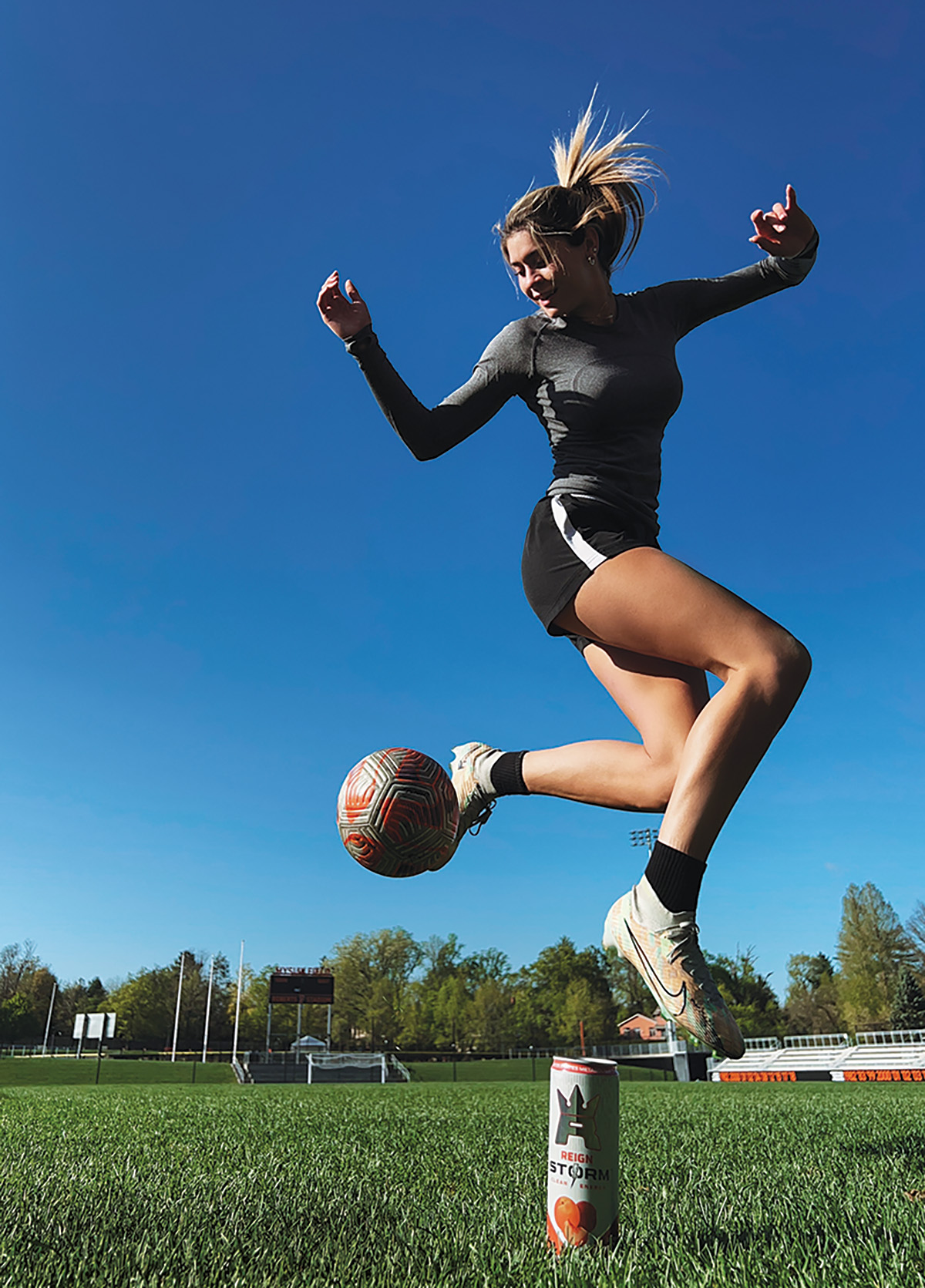Modest NIL Deals (or None at All) Are the Norm for Tiger Athletes
In 2021 the NCAA opened the door for players to earn money from promotional activities
As Princeton women’s basketball headed to Iowa for the NCAA Tournament in mid-March, a string of photos started popping up on Instagram — shots from the court or the locker room, with Princeton logos removed, each captioned with a message about working together.
“Everything we do, we do for each other, and that’s how we win together,” co-captain Ellie Mitchell ’24 posted.
Were the Tigers having some kind of spontaneous online pep rally? Not exactly. Epsilon, a marketing company, offered each player in the 68-team women’s tournament field $500 for a name, image, and likeness (NIL) campaign called “Work Together to Win Together.”
Greg Busch ’99, the senior associate director of athletics in charge of compliance at Princeton, said the players seemed skeptical when they first saw the offer on the Opendorse NIL platform.
“Since it’s so new to them, they were kind of like, ‘Is this real?’” said Busch, who confirmed that it was.
NIL deals have played a growing role in college athletics since the summer of 2021, when the NCAA, following a series of legal defeats, opened the door for players to earn money from promotional activities and reshaped recruiting in the power conferences. At Princeton, though, participation remains relatively sparse. Busch said fewer than 100 of the University’s approximately 1,100 varsity athletes have engaged in NIL deals this academic year.
Nationally, the NIL space has been dominated by “collectives,” independent groups that raise NIL money for athletes at specific schools, outside of the control of the schools themselves. That model has not surfaced in the Ivy League yet. According to Busch, “Philosophically, it’s something that all of our institutions are opposed to.”
“Being able to share the soccer side was really nice and of course opened up a bit more opportunities for deals.”
— LEXI HILTUNEN ’24
Women’s soccer player, on the advent of NIL
There are some common-sense guidelines for NIL at Princeton, similar to those at other schools in the Ivy League and elsewhere: For example, athletes can’t use University logos; they’re not allowed to endorse companies involved in gambling, alcohol, or drugs; and they cannot endorse brands that compete with those that have exclusive University contracts (such as Nike). “Pay for play” is forbidden (receiving money for, say, scoring a goal). But as long as athletes disclose the deals, they are free to pursue a broad range of opportunities.
Wrestler Zander Silva ’27 said NIL has a limited role in his sport, which doesn’t often grab the sort of headlines that basketball or football might. He has promoted a sports rehab center near his New Jersey hometown on social media, mostly because he was a customer first.
Jalen Travis ’24, an All-Ivy offensive lineman with NFL potential, said that even in football, “there’s not that big a market” for NIL deals at Princeton because brands are looking for a return on their investment.
Travis, a recent graduate, has one year of eligibility remaining, and since the Ivies do not allow graduate students to play varsity sports, he entered the graduate transfer portal last fall. Around the same time, he signed with an NIL agent. When he plays at Iowa State next season, he’ll receive NIL payments for public appearances at service events and fundraisers. “I think it’ll be fun to meet people in the community,” he said.
Women’s soccer player Lexi Hiltunen ’24 has ranked among Princeton’s most active NIL athletes. A social media influencer and former model, she had sponsorships outside of soccer before starting college but had to keep them separate to preserve her eligibility.
“I was allowed to say I went to Princeton, but couldn’t say I’m a soccer player,” she said. “I also had a different name that I used for modeling, which is my Instagram name [@lexhil].”
With the advent of NIL, she was able to remove that barrier. “Being able to share the soccer side was really nice and of course opened up a bit more opportunities for deals,” Hiltunen said, including one for an energy drink marketed to athletes.
Princeton has no role in arranging NIL, but new NCAA guidelines, approved in late April, give schools permission to identify opportunities and facilitate deals. Busch said it’s not yet clear if that will change the way the Ivy League approaches NIL.










No responses yet